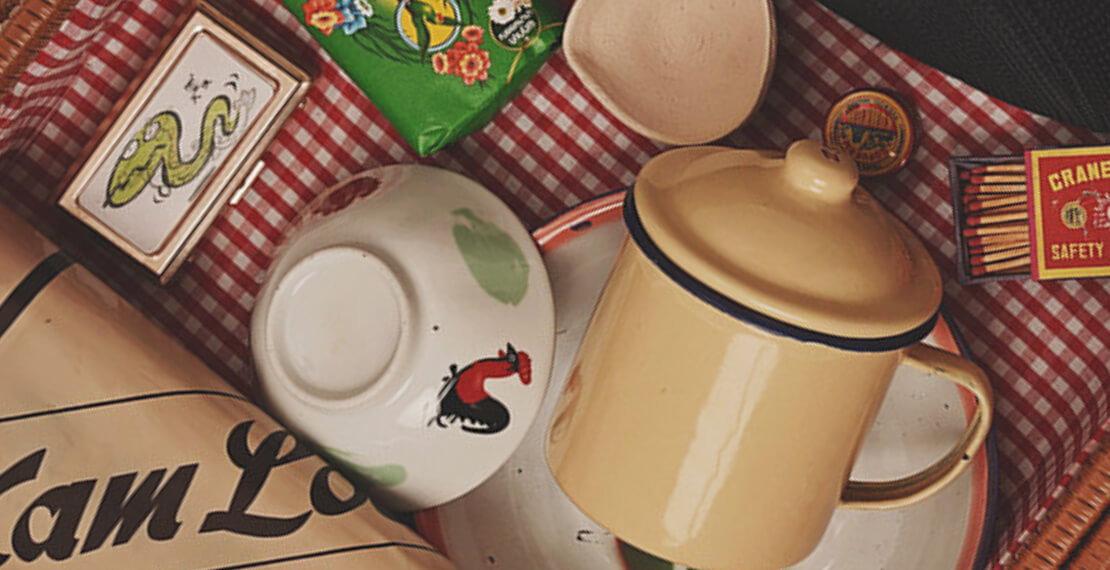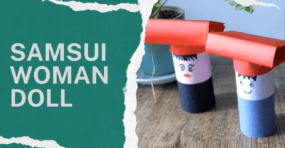Playback speed:
Caring for our loved ones living with dementia often involves seeking effective ways to ensure that they live a life that is enriched and meaningful, even as their dementia progresses. One way to do that is by means of Reminiscence Arts.
What is Reminiscence Arts?
How is it meaningful for persons living with dementia?
The act of artmaking in Reminiscence Arts can serve as an empowering experience for persons living with early or moderate-stage dementia because it affords them the opportunity to create and actualise a piece of artwork. When their work is completed, it can also ignite a sense of achievement, ownership, and gratification within our loved ones.
Persons living with dementia are also encouraged to share the stories and meaning behind their art with their peers, family, and care staff, which promotes verbal communication and socialisation. These merits are also echoed by the growing body of research surrounding creative art, which have noted its effectiveness in promoting social inclusion, promoting self-esteem, and enhancing caring relationships.3
Additionally, Reminiscence Arts encourages imaginative play which provides sensory, visual, and tactile stimulation. These qualities are limited in other forms of reminiscence that are largely conversation-based. The concept of imaginative play also implies that persons living with dementia do not need to have any experience with artmaking. The main aim of such activities is for them to express ideas in a way that is organic to them, guided by the specific themes provided by their facilitator.
Aside from reminiscence, it may also encourage your loved one to foster new interests and realise new things about themselves, especially for those who have not tried artmaking before. In fact, a local research report on the connection of reminiscence with artmaking and cultural heritage found that participants showcased high levels of enthusiasm, engagement, and the ability to learn new skills despite having no experience with artmaking.4
These benefits are also consistent with the principles of person-centred care, which aims to enhance the wellbeing of persons living with dementia by meeting their psychological needs.
How is it meaningful for caregivers?
While the merits of Reminiscence Arts for persons living with dementia are aplenty, caregivers also stand to benefit from it in various ways. Improving interpersonal relationships on a familial level between persons living with dementia and their caregivers is one of them. For instance, persons living with dementia are encouraged to share the stories and meanings behind their artwork with the people around them. This allows family caregivers to get to know their loved ones better because, often, these meanings are tied to past hobbies, interests, and significant experiences in their lives.
On a more practical note, Reminiscence Arts can be conducted by family caregivers in the comfort of their own home. These activities are approximately less than an hour long and are perfect for rainy day weather. Those interested to get an in-depth understanding of how to run these sessions are encouraged to learn more about the structure, skills and methods to further engage their loved ones at home.
Luckily, there are resources available that have been developed to aid formal and informal caregivers in conducting these sessions on their own. These toolkits often come with activities and instructions aimed at guiding caregivers through the process.
Tips for caregivers
1. Create a comfortable and conducive environment
- Provide adequate lighting
- Promote a sense of calm
- Minimise background noise
2. Prepare materials beforehand to ensure that activities are smooth sailing
3. Conduct activities in an unhurried, loving way
- Always allow time for response. The ways in which persons living with dementia communicate differ based on the stage of their dementia they are in. It is important that caregivers tailor the interaction to their specific needs in order to make the most of each conversation.
- Avoid giving them too many options to reduce the likelihood of confusion or distress.
4. Emphasise the strengths of the person living with dementia
- Focus on what your loved one can do and not on what they cannot do
- It is also important to select themes and activities that are meaningful to your loved one. What resonates with one person may not with another.
5. Keep an eye on the person living with dementia
- Look out for signs of fatigue or being overwhelmed. Check-in with your loved one every now and then.
6. Empower, not take over
- If your loved one is struggling with a particular question or activity, ask them if they would like your help. Alternatively, you may wish to guide them on how to do it and have them follow suit.
Reminiscence Arts Resources
JADe Digital Toolkits

Journey with Arts & Dementia (JADe) is a local initiative by Dementia Singapore and supported by the Chua Foundation. A set of digital toolkits were also developed as part of the JADe programme. These toolkits cover various themes such as old school games, cooking, heritage, lifestyle, and weddings. Each toolkit comes with guiding questions, pictures, activities, and instructions for caregivers to strike meaningful conversations with their loved ones. Click on the thumbnails to download guides

Craft Tutorial Videos
Level of Difficulty: Easy
Level of Difficulty: Medium
Level of Difficulty: Difficult
Training Courses
Reminiscence Arts for Dementia (Basic E-Learning)
Caregivers interested in Reminiscence Arts facilitation and would like to explore more about how to engage your loved ones in these sessions, can register for the free e-learning modules offered by Dementia Singapore and learn at your own pace.
Reminiscence Arts for Dementia
More advanced Reminiscence Arts facilitation offered by Dementia Singapore, to equip caregivers and public members with theoretical, and practical knowledge to design and implement small-group reminiscence art sessions for persons living with dementia.
Reminiscence Arts for Dementia(Professional Caregivers)
Designed for Allied Health Professionals, Psychosocial staff and care staff who plan to design, prepare and conduct reminiscence based activity programmes for persons living with dementia. Training includes an assessment at the end of the course.
Tell us how we can improve?
- Tan, M. K. B. (2018), ‘Connecting reminiscence, art making and cultural heritage: A pilot art-for-dementia care programme’, Journal of Applied Arts Health, 9:1, pp. 25–36, doi: 10.1386/jaah.9.1.25_1
- Woods, B., O’Philbin, L., Farrell, E. M., Spector, A. E., & Orrell, M. (2018). Reminiscence therapy for dementia. The Cochrane database of systematic reviews, 3(3), CD001120. https://doi.org/10.1002/14651858.CD001120.pub3
- Hannemann, B. T. (2006), ‘Creativity with dementia patients: Can creativity and art stimulate dementia patients positively?’, Gerontology, 52:1, pp. 59–65
- Tan, M. K. B. (2018), ‘Connecting reminiscence, art making and cultural heritage: A pilot art-for-dementia care programme’, Journal of Applied Arts Health, 9:1, pp. 25–36, doi: 10.1386/jaah.9.1.25_1



















